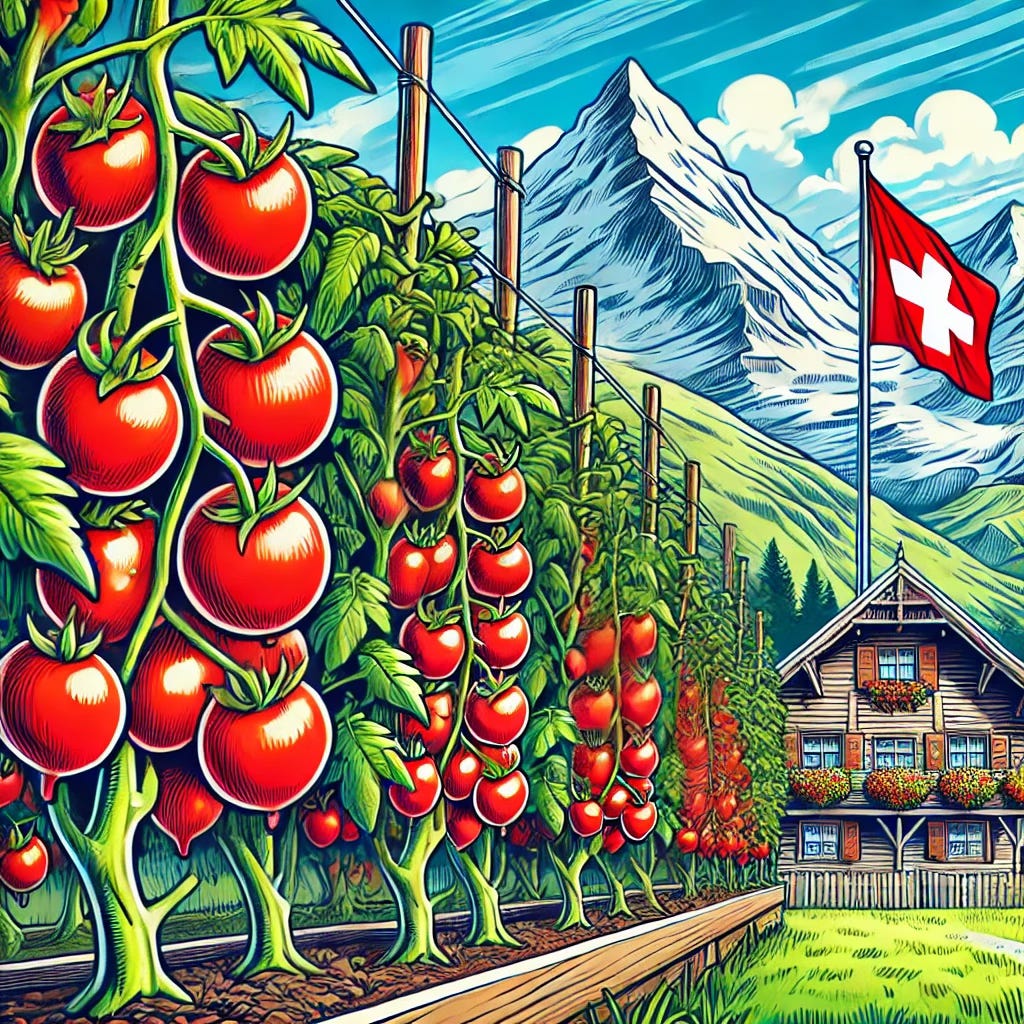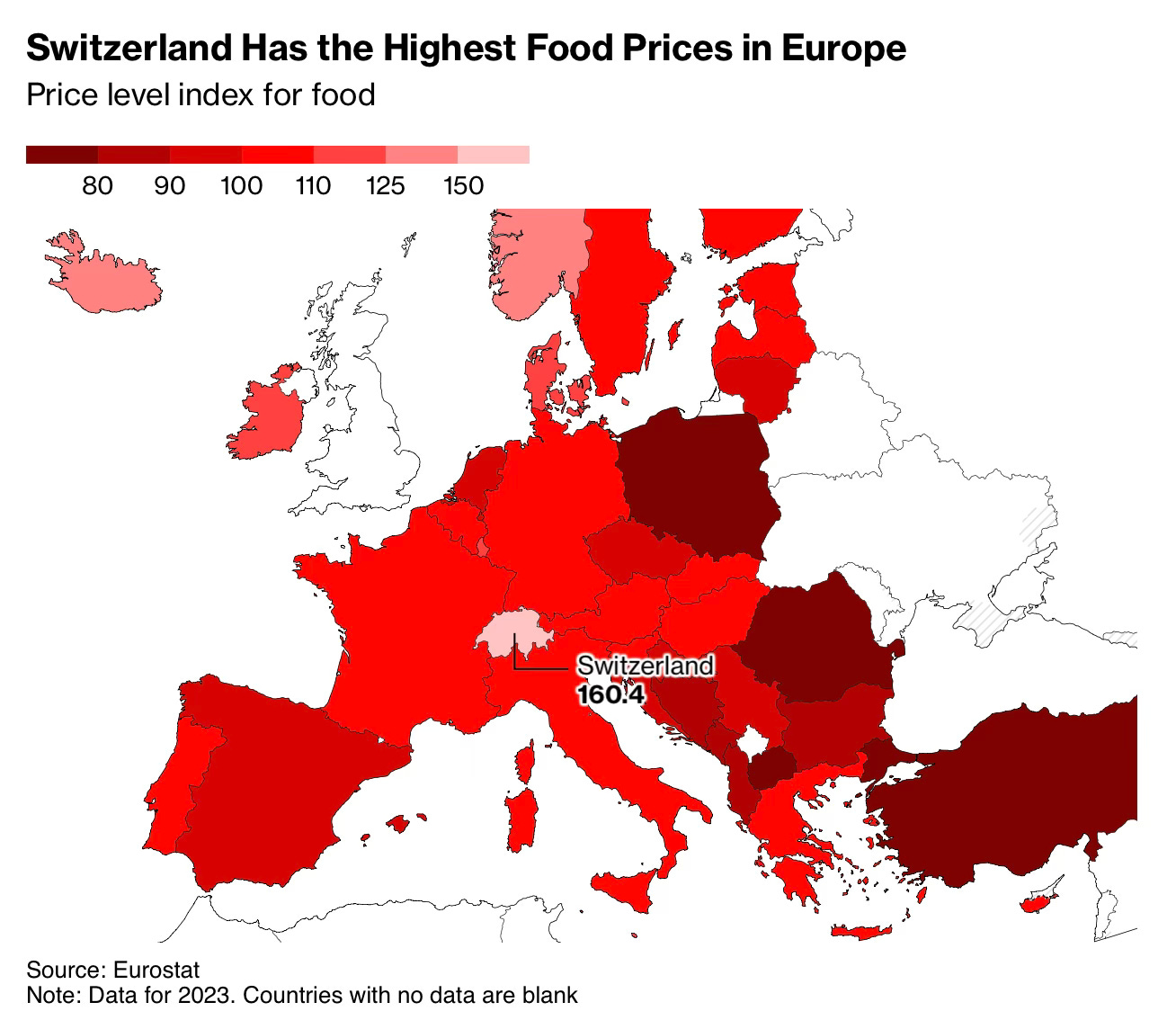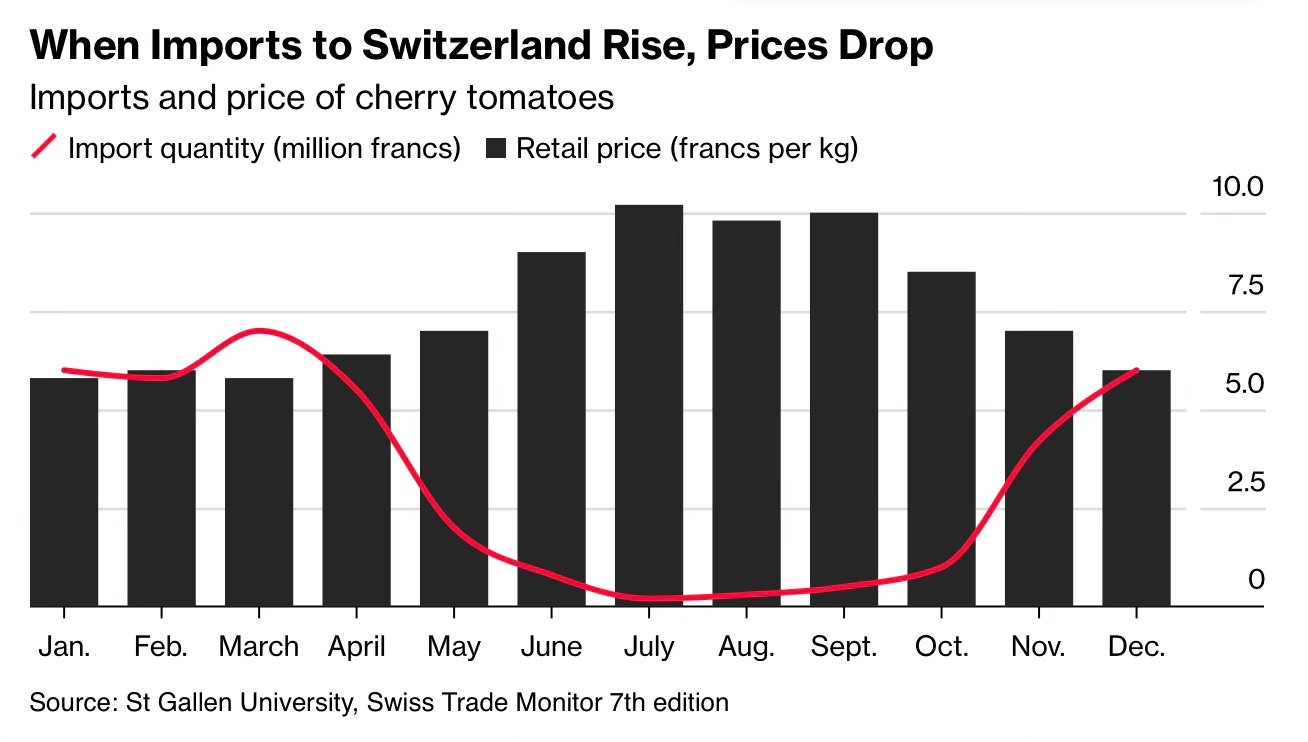Bad harvests for Swiss farmers mean cheaper tomatoes
Five charts to start your day
Half term in Switzerland is a great affair, with the kids enjoying two weeks off instead of just one. This extended break harks back to the old days when children would help their parents on the farms. This reflects the deep-rooted tradition of supporting local farmers, a practice still very much alive and closely tied to the country’s historic past.
Even my family participate. Once a week, we visit the local farm shop, where there's no one to serve you – it's a business based entirely on trust. You take what you need, weigh it, and note down the item and its cost in a book. At the end, you tally it all up and Twint the farmer (Twint being the mobile payment service we use here in Switzerland). Remarkably, you can do most of your weekly shopping on a farm.
But here's a question for you: do you fancy paying more for tomatoes when they're in season? Welcome to Switzerland! That's how it works, even though it defies logic. After all, Switzerland boasts the highest food prices in Europe so who is going to notice?
This pricing phenomenon is driven by the Swiss government's tariff policies, which keep cheap foreign meat and vegetables out to protect local farmers. Most people in Switzerland support this approach culturally, which is why food prices are so high. If you don’t, you can always drive across the border to Germany, France or Italy to do your groceries, depending where you live. The Swiss ultimately prefer quality over quantity, and ideally, as local as possible.
Things get interesting when harvests are poor or when certain items are out of season. Logic seems to flip on its head – sometimes, cherry tomatoes are cheaper in winter than they are in summer (see the chart). The same dynamic occurs when Swiss hens can’t lay enough eggs to meet local demand; imported budget eggs fill the gap and bring overall prices down.
Of course, this isn’t always the case. Cherries from Zug, for example, do cost less when they’re in season. Once a year, I give five francs to my kids, and in the autumn, they get as many crunchy apples as they want at school, thanks to the local farmers. Apple prices genuinely drop during these harvest seasons, but it is not always the case. There are those tariff-distorted oddities that make little sense to most ordinary people – just like cherry tomatoes. Weird right?
Source: Bloomberg
Coming up:
Switzerland’s trade agreement with China has reaped rewards
Chinese airlines have benefitted from the war in Ukraine
China has the most skyscrapers in the world
China’s trade dominance plows through tariffs
If you like the sound of that line up, this is usually a paid newsletter. You basically get all my best ideas daily. Hit the subscribe button if you are interested and this will be sent to your inbox daily.





